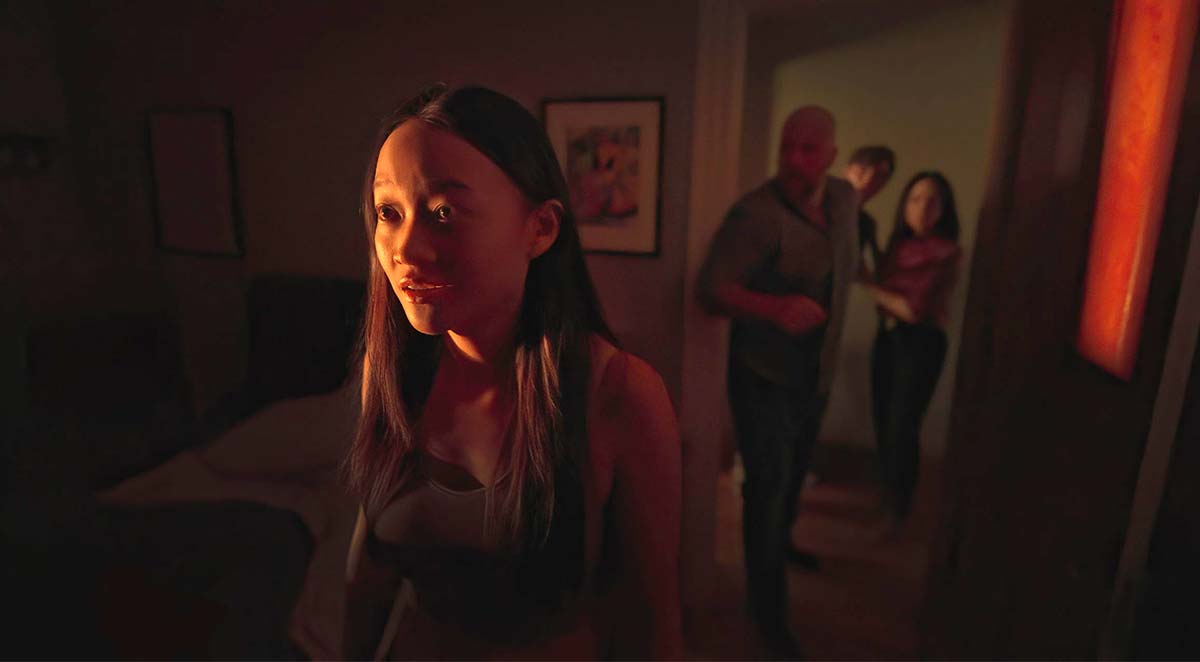Film Review: Presence (2025)

Leave it to filmmaker Steven Soderbergh to continually defy expectations by making out-of-the-blue movies using unique and risky techniques. In Presence, the always iconoclastic director tackles the ghost/haunted house genre with gusto as he delivers a somber, tense, and family-driven drama about a mysterious entity – or presence, if you will – that roams the halls and rooms of a seemingly typical suburban home. But, where Presence differs from other genre entries is in its peculiar choice of perspective: the ghost’s. The entire movie is literally seen through the eyes of the haunter rather than the haunted.
This simple change in vantage point might seem gimmicky, but what could have easily been exploited for maximum schlock value is instead used with great care by Soderbergh, who exercises an enormous amount of restraint when presenting this saga of familial favoritism, sibling rivalry, grief, and suspicion. Certainly, there are a few “bumps in the night” moments here and there, but understanding why a ghost might slam a door is an infinitely more interesting concept than the overused motivations found in the angry spirit movies we’ve grown accustomed to.
Set entirely within the suburban home recently bought by the Payne family, Presence establishes its rules early on as we follow the ghost first through the empty house, then watch as the new tenants move in and gets settled. Almost immediately, the spirit takes a liking to daughter Chloe (Callina Liang), who we learn has recently suffered the unexpected death of her best friend. Chloe’s parents, Rebekah and Chris (Lucy Liu and Chris Sullivan) are doting toward their teenage children, which includes brother Tyler (Eddy Maday), but clearly have their favorites.
Things complicate as Rebekah and Chris begin to have marital issues spurred by alleged white-collar crimes committed by Rebekah, along with Chloe’s unchecked grief and the family’s inability to deal with her trauma (some try harder than others, and with more success). Through this, the ghost begins to make its “presence” known, but does so in ways – or more accurately with motivations – that time and again subvert genre norms.
Thanks to a concise script by prolific screenwriter (and frequent Soderbergh collaborator) David Koepp, Presence never outstays its welcome. At just 85 minutes, this is a haunt that knows when it’s time to leave – or rather, when to let us leave. Despite a few questionable story contrivances leading to its climax, Presence offers all the chills you might expect from a haunted house story, but through its clever storytelling techniques, delivers them in ways that rarely fail to surprise.

